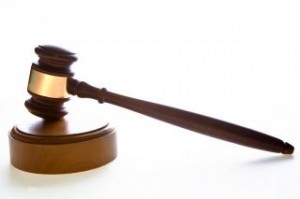Forgiveness and PTSD: Releasing Trauma or Excusing the Guilty?
But let’s consider this:
In his book, USE YOUR BODY TO HEAL YOUR MIND, Dr. Henry Grayson writes,
“When we live with resentment and do not practice forgiveness, we are holding on to … emotional injuries. By staying attached to these negative feelings we keep the cells in our bodies in the state of negativity rather than at peace, setting up potential illnesses.”
Wow, from this perspective, forgiveness takes on a whole new meaning. Now, more than ever before, it’s clear: Forgiveness is not for who hurt us, it is for us.
How to Forgive and Feel Good About It
 Recently on my radio show, Changing Direction, I interviewed Dr. Margaret Nagib, a clinical psychologist and faculty member at Timberline Knolls Residential Treatment Center. She shared with me the enormous power of forgiveness by explaining,
Recently on my radio show, Changing Direction, I interviewed Dr. Margaret Nagib, a clinical psychologist and faculty member at Timberline Knolls Residential Treatment Center. She shared with me the enormous power of forgiveness by explaining,
“When we refuse to forgive it’s because we get stuck in an unwillingness to recognize our vulnerability. We need to get comfortable with the idea, 'I was hurt, and I will be hurt again.' Then, we need to release that idea and the feeling it creates. Forgiveness offers you the chance to acknowledge your vulnerability and decide what you want to do and how when a similar situation happens in the future. When we don’t allow this process, we stay stuck in our wounded identity.”
Yikes! The process of healing symptoms of posttraumatic stress disorder is all about letting us out of our wounded identity. Suddenly, forgiveness sounds incredibly relevant.
PTSD, Forgiveness and Reconciliation
Dr. Nagib went on to make a critical distinction about the difference between forgiveness and reconciliation:
“Forgiveness can happen and we still remain disconnected from the person who hurt us. There are people I have forgiven that I will never see again. Reconciliation takes two. That is, both parties have to be willing. We can forgive and not reconcile.”
I like this idea of separating out cutting the ties versus maintaining them in new ways. This perspective brings even more power into the process of forgiveness, shifting it even further away from what we do for others versus what we do for ourselves.
In my own PTSD recovery, I did choose to forgive the person who hurt me. I didn’t reconcile with him. In over 30 years, I’ve never spoken to or seen him again. While I still hold him responsible for the trauma I endured, I have released all of my active anger toward him.
What are your thoughts about forgiveness and its place in healing posttraumatic stress? In my post next week, I’ll share five steps for a smooth forgiveness process.
Michele is the author of Your Life After Trauma: Powerful Practices to Reclaim Your Identity. Connect with her on Google+, LinkedIn, Facebook, Twitter and her website, HealMyPTSD.com.
APA Reference
Rosenthal, M.
(2013, August 28). Forgiveness and PTSD: Releasing Trauma or Excusing the Guilty?, HealthyPlace. Retrieved
on 2025, November 28 from https://www.healthyplace.com/blogs/traumaptsdblog/2013/08/forgiveness-ptsd-releasing-trauma-or-excusing-the-guilty
Author: Michele Rosenthal
I just watched the video "Your Life After Trauma: Powerful Steps to Reclaim Your Identity". I'm definitely buying the book. It took me years of slogging through PTSD recovery to come to the realization that I was grieving for the person I was before trauma. The self-confident woman who thought she could accomplish anything. Who was admired and sought out. I was grieving for my relationships with family, friends my boyfriend all of which either ended or changed forever. It took a very long time to forgive everything and everyone, including myself. Thank you so much Michelle.
I know I have to forgive and I now know it's not condoning the actions of the other person, but it does take time to completely forgive. The hurt will always be there in the back of my mind and I know when it pops up I have to stop it and change my thought to something positive. Sometimes I don't catch myself right away and the anger and hurt starts eating at me. then the best thing for me is to get out and surround myself with people. It's a good distraction for me. I may go out shopping, take my dog to the dogpark(there are always a lot of people there to talk to) go out to eat by myself or with a friend, go to museums, bookstores, church, bible study, etc. etc.
That is such a great way to deal with it. It never occurred to me. I am inclined to isolate myself which isn't very productive. I think I'll head to the dog park next time, thank you!
[...] that my symptoms are managed and that there is balance in my life. It means passionate self-care, forgiving the past with understanding and knowing that I can choose to be bitter (there is plenty to be bitter about) [...]